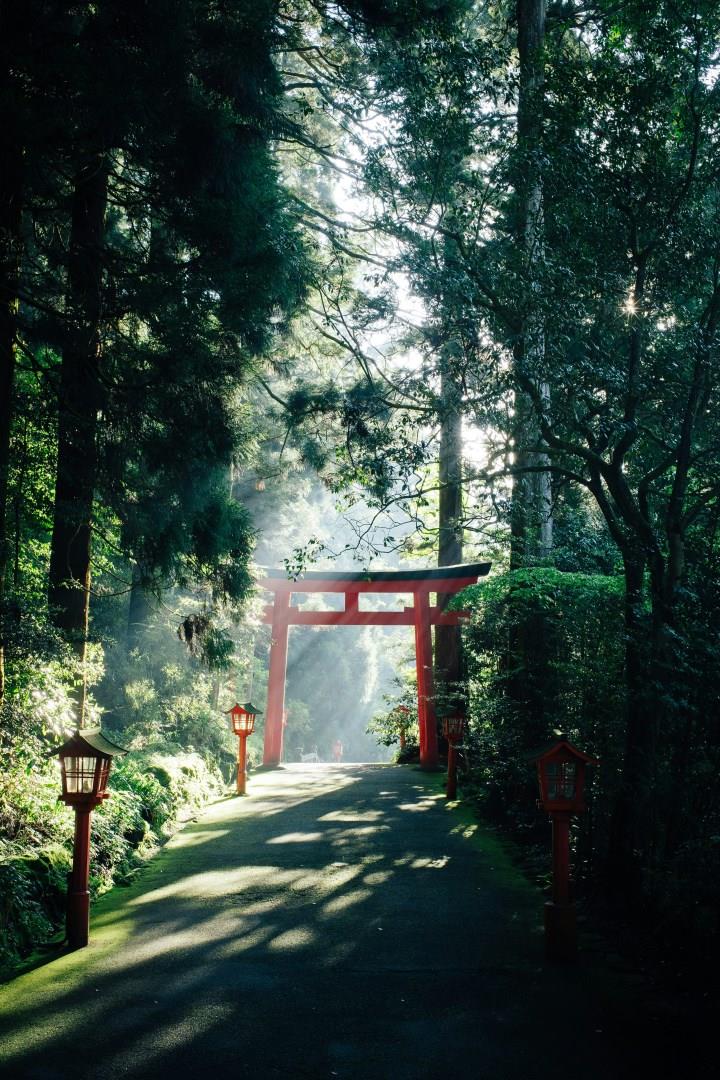


Nestled in the mountains just 90 minutes from Tokyo, Hakone has long been a retreat for travelers seeking both quiet and culture. Once a crucial checkpoint on the historic Tōkaidō road between Edo and Kyoto, Hakone is still shaped by centuries of history. The reconstructed Hakone Sekisho (Hakone Checkpoint) offers a glimpse into the Edo Period, when travelers were inspected by samurai guards before continuing on their journey. Nearby, the old stone-paved path through the forest remains walkable, allowing visitors to follow in the literal footsteps of 17th-century pilgrims and poets.
Hakone’s most iconic view is of Mount Fuji reflected on the waters of Lake Ashi. This crater lake, formed after a volcanic eruption over 3,000 years ago, can be crossed by boat. The Hakone Ropeway, which soars over active volcanic vents in the Ōwakudani Valley, offers a close look at the region’s geothermal activity. The area is known for its black eggs boiled in sulfur-rich hot springs where eating one is said to add seven years to your life.
Hakone is also known for its onsen culture, with natural hot springs feeding traditional inns (ryokan) and public baths. Many of these offer views of bamboo groves, private soaking tubs, or kaiseki dining. In the Gora district, visitors can even cook their own meals using steam vents in the ground, a unique way to experience the volcanic landscape firsthand.